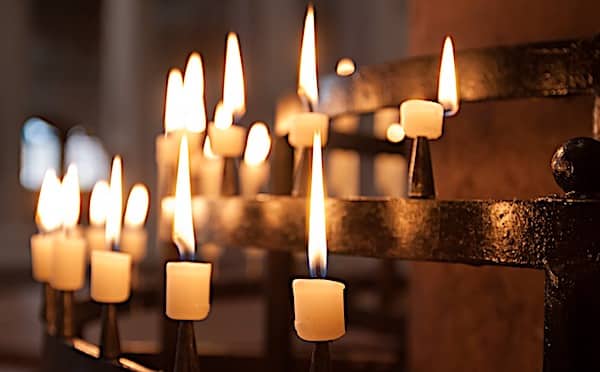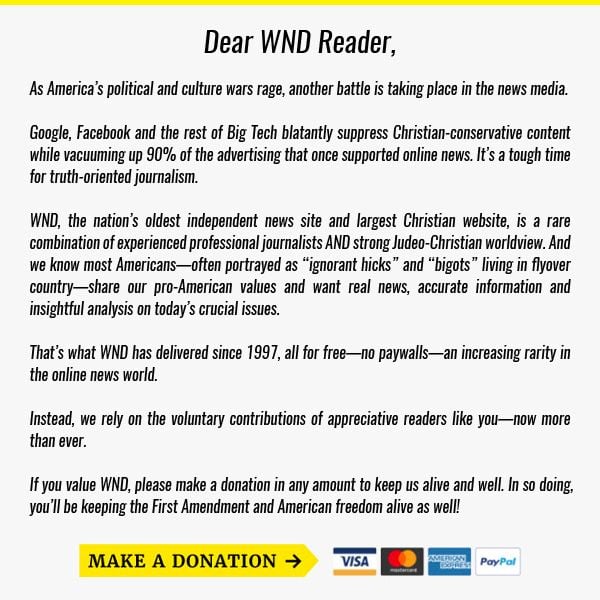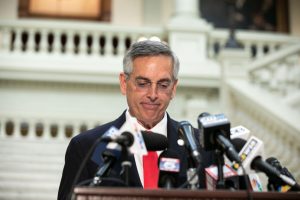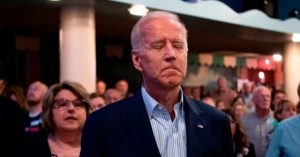[Editor’s note: This story originally was published by Real Clear
Politics.]
By Susan Crabtree
Real Clear Politics
The tumultuous 2020 presidential campaign, more so than any
other in recent decades, produced a tug-of-war over religious
voters with intense interest in whether President-elect Joe Biden
could coax them out of the Trump camp.
Exit polls showed evangelical Christians, a linchpin of Donald
Trump’s 2016 victory, still overwhelmingly broke for him. But
self-identifying Catholics – those attending Mass regularly mixed
in with those who don’t — split almost evenly between the two
candidates, according to AP Votecast.
Supporters of Biden, a life-long Catholic who speaks often about
his faith, argue he won over religious voters by emphasizing
character, moral decency and the need to restore the “soul of
America” after Trump’s chaotic, combative leadership.
Team Trump has dismissed that attempt to lay claim to these
voters. The president and his backers point to a long list of
actions he took to promote and protect the right to exercise
one’s religion of choice free of government constraints,
including leading the charge to strike down the Obamacare
contraception mandate that many Catholic groups opposed. Biden has
said he would revive the legal battle with the Little Sisters of
the Poor, the order of nuns that has fought the provision in
court.
Against this backdrop, a new survey on religion and its role in
American life offers a lesson for political candidates looking to
improve their standing among voters who care about religious
liberty. In turns out, a political candidate’s support for this
freedom, a bedrock American ideal embedded in the First Amendment,
is far more important to voters than their own faith when backing a
candidate.
The Becket Fund, a Washington, D.C., nonprofit public interest
law firm that defends this right for people of all faiths, surveyed
1,000 Americans across the country over the last year. The
organization provided an early review of its Religious Freedom
Index findings to RealClearPolitics and will release them publicly
Tuesday afternoon.
One of the poll’s most surprising findings is just how
important religious freedom is to American voters and how it
factors into their choice of candidates. Respondents who were
registered to vote were consistently more supportive of religious
freedom than those not registered. And when it comes to a
candidate’s stance on the issue, 78% of those polled said it was
an important factor in their voting decisions. In comparison, only
45% said their own faith influenced their vote to a moderate degree
or more.
“The message for all elected officials is there’s a clear
desire there for more attention to defending religious freedom,”
Caleb Lyman, the Becket Fund’s director of research, told RCP.
“It’s important to a big voting bloc.”
And the country’s lawmakers have far more work to do in
convincing voters they are dedicated to protecting this
constitutional right. When asked which branch of government does
the best job of safeguarding religious freedom, respondents were
more likely to choose the courts than elected officials, including
the president, Congress and state governments — with Congress
given the least credit.
Becket created the Religious Freedom Index, now in its second
year, as an in-depth survey of Americans’ opinions and
perspectives on religion so it could detect subtle shifts over
time. The data files for the survey are hosted online by the
Association for Religion Data Archives, which is commonly cited in
media reports for offering free public access to statistics
including church membership numbers from around the world.
The core of the findings are tracked by asking the same 21
questions in the same order each year — though the group added new
ones in 2020 to evaluate how the year’s turbulent events are
impacting views on religion and the ability to practice it.
Some 62% of respondents said faith or religion was helping them
navigate the challenges posed by the coronavirus pandemic while
more than three-quarters — 78% — said religion is important to
providing stability during times of social unrest. One of the
poll’s most surprising findings is that Gen Z respondents, who
were born in the late 1990s to the early 2010s, were much more
likely to say faith had been important to their handling of COVID
uncertainty and restrictions. This and other surveys have found the
young adult age group to be less religious, and they are some of
the least at risk during the pandemic. But these young adults are
joining their grandparents — those in the over-65 group — in
being more likely than the overall sampling of respondents to say
faith and religion are important to dealing with the pandemic.
It generally comes as little surprise that Americans turn to
religion in times of uncertainty, considering another more basic
finding: Some 60% of those surveyed agreed with the statement that
religion is a fundamental part of “who I am” and should be
protected accordingly.
Those findings factor into the controversy, which has played out
in the courts, over whether state and local governments are
treating houses of worship fairly during the COVID lockdowns and
restrictions. The survey found that a majority of respondents said
that houses of worship should be treated with at least the same
priority as reopening businesses.
When comparing state and local rules governing outdoor religious
services and outdoor protests, respondents were twice as supportive
of giving priority to the religious services, according to the
index. That’s not a sign, however, that Americans value their
personal religious pursuits more than efforts to improve racial
equality. The index also found a leadership gap when it comes to
the racial unrest that has swept the country this year as
communities reacted to the killing of several black men and women
by police. More than four out of five respondents who said faith
was important also believe religious organizations and their
leaders should play a role in advocating for greater racial
equality, but less than half think their faith community is doing a
good job of responding to the issue.
“It’s really important for religious communities to think
about how they can fill that leadership gap,” Lyman said.
“There’s a clear desire for people of faith to have their
religious communities involved in advocating for racial justice,
but they don’t see that role being filled yet.”
Susan Crabtree is RealClearPolitics’ White House/national
political correspondent.
Real Clear
Politics.]
The post
Poll: Faith freedoms are key to voters’ choices appeared first
on WND.




